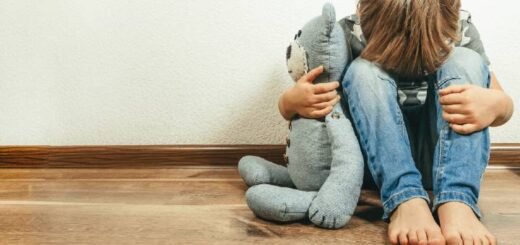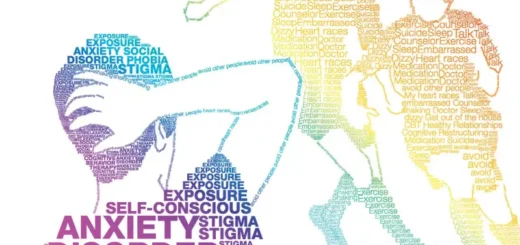Unpacking Social Phobia: Childhood Fears of Judgment
Understanding the roots of social phobia is essential for addressing the pervasive issue of social judgment anxiety, particularly within the New Zealand context. Childhood experiences, such as parenting styles, peer interactions, and early social engagements, play a significant role in shaping an individual’s susceptibility to social anxiety. Additionally, societal expectations in New Zealand, where a strong emphasis is placed on social cohesion and community involvement, can exacerbate feelings of inadequacy and fear of social judgment.
As individuals navigate their social environments, the weight of potential criticism can lead to a debilitating cycle of avoidance and distress. Recognizing these influences is crucial for developing effective strategies to combat social judgment anxiety. Resources like the guide from the New Zealand Social Phobia Network offer valuable insights for individuals seeking to overcome these challenges. For more information, visit Overcoming Social Phobia: A Guide for New Zealanders.
Understanding Social Phobia: A Multifaceted Issue
Defining Social Phobia
Social phobia, often termed social anxiety disorder, is a pervasive fear of social situations where one might be judged or scrutinized. Individuals with this condition experience overwhelming anxiety and self-consciousness in social settings, leading to avoidance behaviors. This phobia can significantly impair daily functioning, affecting both personal and professional spheres. Understanding its roots is crucial for developing effective coping strategies and therapies.
The Role of Childhood Experiences
Childhood experiences play a pivotal role in the development of social phobia. Children who encounter critical or overly demanding parents may internalize feelings of inadequacy. These early experiences can create a framework for viewing social interactions as threatening. For instance, a child who is frequently criticized for their performance in school may grow up fearing judgment from peers and authority figures. In New Zealand, cultural expectations regarding success and achievement can amplify these feelings, making it essential to address childhood influences.
The Impact of Bullying
Bullying during childhood is another significant contributor to social phobia. Children who are bullied often feel isolated and develop a heightened sensitivity to social judgment. This can result in a vicious cycle, where the fear of being judged keeps individuals from engaging socially, further reinforcing their anxiety. In New Zealand, schools have implemented various anti-bullying programs, but the scars left by bullying can linger long into adulthood, leading to persistent social judgment anxiety.
Societal Expectations and Pressures
Society plays a crucial role in shaping our perceptions of self-worth and success. In New Zealand, the “tall poppy syndrome” can create an environment where individuals fear standing out or drawing attention to themselves. This cultural phenomenon discourages individuals from showcasing their talents or achievements to avoid criticism. The pressure to conform can exacerbate feelings of inadequacy and social judgment anxiety, making social situations daunting for many.
The Influence of Social Media
The rise of social media has transformed the landscape of social interactions. Platforms like Facebook, Instagram, and TikTok can amplify feelings of inadequacy, as users often compare their lives to curated versions of others’ realities. This constant comparison can lead to increased anxiety about social judgment, particularly among young adults and teenagers in New Zealand. Encouraging a healthy relationship with social media is vital in mitigating these effects and fostering a more positive self-image.
Seeking Help and Support
Addressing social phobia requires a multifaceted approach that includes seeking help. Professional support, such as cognitive-behavioral therapy (CBT), can be effective in treating social anxiety. In New Zealand, resources are available for those struggling with social judgment anxiety, including counseling services and support groups. These resources can provide a safe space for individuals to share experiences and develop coping strategies, ultimately reducing feelings of isolation.
Building Resilience Through Empowerment
Empowering individuals to challenge their fears is essential in overcoming social phobia. Practical strategies, such as gradual exposure to social situations, can help individuals build confidence. In New Zealand, community programs often encourage participation in group activities, fostering a sense of belonging and reducing anxiety. Additionally, practicing mindfulness and self-compassion can help individuals manage their thoughts and feelings surrounding social judgment, paving the way for healthier social interactions.
Conclusion: Moving Forward
Understanding the roots of social phobia is vital for addressing its impacts on individuals’ lives. By recognizing the influence of childhood experiences and societal expectations, we can work towards creating a more supportive environment. For additional resources and information, visit Social Phobia New Zealand to learn more about social judgment anxiety and find support tailored to your needs.
FAQs
What is social phobia and how does it relate to social judgment anxiety?
Social phobia, also known as social anxiety disorder, is an intense fear of social situations where an individual may be judged or scrutinized by others. This fear often manifests as social judgment anxiety, where the individual experiences overwhelming worry about being embarrassed or humiliated in social settings.
How do childhood experiences contribute to social phobia?
Childhood experiences play a crucial role in the development of social phobia. Negative experiences, such as bullying, overprotective parenting, or lack of social interaction, can create a foundation of insecurity and fear surrounding social situations. These formative experiences can lead to heightened social judgment anxiety as individuals internalize the belief that they are at risk of negative evaluation.
What societal expectations might exacerbate social judgment anxiety?
Societal expectations, such as the pressure to conform to social norms or perform well in public settings, can significantly exacerbate social judgment anxiety. Cultural ideals around success, appearance, and communication can create a fear of not measuring up, leading individuals to avoid social situations altogether to escape potential judgment.
Can social judgment anxiety affect relationships?
Yes, social judgment anxiety can have a profound impact on relationships. Individuals may withdraw from social interactions or avoid forming close connections due to their fear of being judged. This avoidance can result in loneliness and isolation, further reinforcing the cycle of anxiety and fear in social contexts.
What are some common symptoms of social phobia related to social judgment anxiety?
Common symptoms of social phobia include excessive worry about upcoming social events, physical symptoms such as sweating or trembling in social situations, and an overwhelming desire to avoid social interactions. These symptoms are often related to the fear of negative evaluation and social judgment anxiety, which can hinder daily functioning.
How can individuals manage their social judgment anxiety?
Managing social judgment anxiety requires a combination of strategies, including cognitive-behavioral therapy (CBT), exposure therapy, and mindfulness practices. These approaches can help individuals reframe their thoughts about social situations, gradually face their fears, and develop healthier coping mechanisms to reduce anxiety.
Is it possible to overcome social phobia and social judgment anxiety?
Yes, many individuals can overcome social phobia and social judgment anxiety through appropriate treatment and support. With the right interventions, including therapy and support groups, individuals can learn to challenge their fears, build confidence, and engage more freely in social situations, ultimately enhancing their quality of life.
References
- Understanding Social Phobia – This resource offers comprehensive information on social phobia, including its roots in childhood experiences and societal expectations, along with support options.
- Childhood Experiences and the Development of Social Anxiety – This academic article examines how early life experiences shape the development of social anxiety disorder.
- The Roots of Social Anxiety – A Psychology Today article discussing various factors, including childhood events and societal pressures, that lead to social anxiety.
- Social Anxiety Disorder: Causes and Risk Factors – This resource outlines the potential causes of social anxiety, emphasizing the role of childhood experiences and societal influences.
- Social Anxiety Disorder – The American Psychological Association provides insights into social anxiety, focusing on its origins in childhood and the impact of societal expectations.




